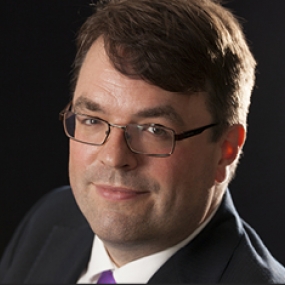Will a seven day NHS be possible after Brexit?

Chief Executive, Royal College of Anaesthetists
This is a blog written by Tom Grinyer, RCoA Chief Executive, for the UK in a Changing Europe, an Economic and Social Research Council funded initiative which looks to bring expert coverage of UK-EU relations to the wider public.
The extent to which the NHS relies on European nationals really hit home to me when my son was taken seriously ill and admitted to my local hospital. For a week he received excellent care and slowly got better but I will always remember the German doctor who discharged him a week after admission on a cold, wet December Sunday morning.
This doctor had travelled to the UK to cover the rotas over the weekend – flying in on Friday evening and back to Germany on Sunday evening– therefore ensuring safe and uninterrupted seven-day paediatric services.
Such ready access to talent from neighbouring European countries through the policy of freedom of movement has been a real asset to the NHS, but we still do not know what the full scope for such freedom of movement will be after Brexit. What we do know is that a seven day service NHS is only possible if the workforce is there to deliver it.
In November the UK’s three largest healthcare think tanks in the UK published their joint report ‘The healthcare workforce in England – make or break’. The report paints a gloomy picture for the future of the health and social care workforce, predicting that, unless current trends are reversed, there will be a shortfall of at least 250,000 healthcare staff by 2030 across NHS Trusts.
Later that month the Institute for Public Policy Research published their report ‘Fair Care’, an equally worrying account of the state of social care as a profession, estimating a shortage of 400,000 care workers by 2028.
I have no doubt that shortfalls would be anticipated despite Brexit but unsurprisingly both reports list Brexit as an exacerbating factor for the workforce challenges currently faced by the NHS and the social care sector.
To further add to the workforce pressures there is a steady decline in the number of young people choosing a career in health and social care and an increase in the healthcare professionals, especially nurses, opting to leave their jobs to pursue careers outside of the sector.
I have no doubt that shortfalls would be anticipated
When the Royal College of Anaesthetists surveyed our members two years ago, soon after the Brexit referendum, it found that one-third of anaesthetists in UK hospitals find it hard to deliver safe and effective patient care due to wide-ranging lack of resources and availability of qualified staff. Therefore, Brexit – and in particular Brexit uncertainty – comes at a bad time for the healthcare workforce.
Good quality, safe, seven-day hospital care is impossible without a well-trained and available workforce working in integrated teams collaboratively across different healthcare settings.
Outside the hospital this must also include social care, which enables patients to be treated at home where possible or recover in the community, maintaining patient flow in and out of hospitals.
Anaesthesia is the single largest hospital specialty in the UK, with two-thirds of hospital patients coming into contact with an anaesthetist. Anaesthetists can act as the glue that holds secondary and tertiary care together.
Their skill set is unique and are often called to assist with time-critical, life and death situations. For specialties, such as anaesthesia, and intensive care, the slightest delay in treating patients in a critical condition can have catastrophic consequences. Urgent out-of-hospital services and hospital departments simply cannot function without adequate resources and well-staffed multidisciplinary teams.
In addition, today the scope of anaesthetists goes well beyond their traditional clinical responsibilities in the operating theatre. Anaesthetists work across specialties under the umbrella of ‘perioperative medicine’ – the practice of patient centred, multidisciplinary and integrated medical care from contemplation of surgery until full recovery.
This approach ensures the patient presents for surgery in the best possible condition – prehabilitation – thus reducing post-operative complications, improving outcomes and reducing costs.
The Migration Advisory Committee’s report on European Economic Area (EEA) migration will inform the government’s immigration White Paper and its recommendation is that EEA nationals should not be treated any differently to migrants from other countries and be subject to the same visa restrictions and salary thresholds.
And yet, from a healthcare sector point of view, decades of alignment on clinical and training standards across the EU28 states, make EEA qualified professionals easy to recruit, assess and integrate into UK healthcare settings.
So, at the time of writing, it is still unclear what kind of Brexit we will have, but regardless of how we come out of the EU it is true that it is time to review how health and social care is delivered and that we need to grow our own workforce. However, this will take years and for a truly seven-day service to function after Brexit, put simply, more boots on the ground are needed to run it.
Immigration from Europe still has an important part to play in the NHS and has the potential to offer much needed support while health and social care in the UK gets its house in order.
Tom Grinyer
